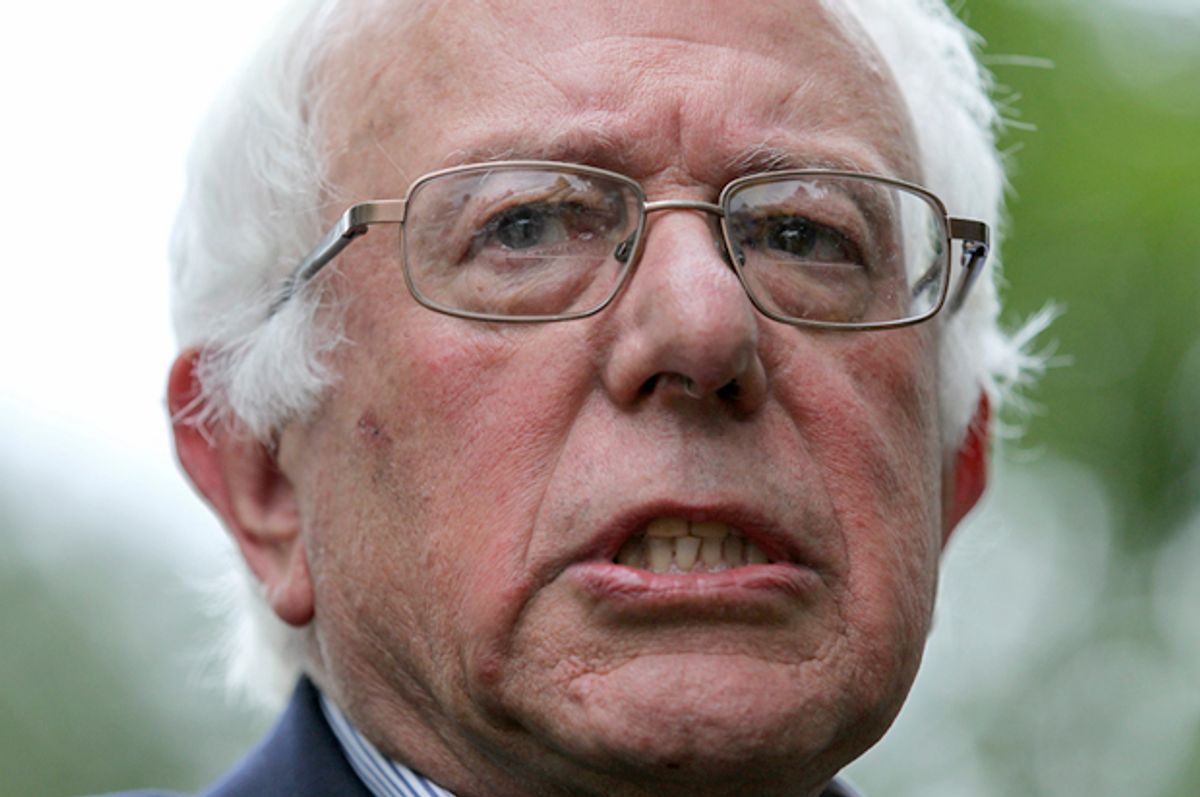Nearly one week ago, Bernie Sanders stood in front of the Democratic National Committee headquarters in Washington, D.C. and demanded a "fundamental transformation of the Democratic Party,” calling for significant changes to the process by which the party selects its presidential nominee. Now, at least one major caucus within the party is already protesting two of Sanders' biggest proposed changes.
“Somewhere between 1,900 and 2,000 delegates [are going] to Philadelphia,” Sanders noted, referring to the party’s nominating convention next month. “They want to see the Democratic Party transformed," he insisted, before listing a set of demands that included opening up all primaries to Independent voters, same-day voter registration and an end to the superdelegate system. (Notably, Sanders did not call for any changes to the caucus system).
“We need to also make sure that superdelegates do not live in a world of their own but reflect, reflect, the views of the people in their own states,” he said, repeating his continued attack on the system by which over 600 Democratic Party loyalists and elected officials are granted a vote at the nominating convention that is unattached to any votes cast in the primaries or caucuses.
But while Democrats in California and Nebraska followed Sanders' lead over the weekend, moving to push for some of those specific changes to the nominating process over, members of the Congressional Black Caucus released a letter expressing their "unanimous" and "vehement" opposition to Sanders' call to abolish superdelegates and to open the primaries and caucuses to voters not registered with the Democratic Party.
"The Democratic Members of the Congressional Black Caucus recently voted unanimously to oppose any suggestion or idea to eliminate the category of Unpledged Delegate to the Democratic National Convention (aka Super Delegates) and the creation of uniform open primaries in all states," a letter sent to the Sanders campaign, Hillary Clinton campaign and Democratic National Committee Chairwoman Debbie Wasserman Schultz over the weekend read.
In a series of letters first reported by Politico, the CBC officials specifically argued against allowing independents and Republicans to vote in Democratic primaries and in follow-up comments to the magazine, argued in favor of the much maligned superdelegate system.
“There is no need to succumb to the pressure of a few individuals to make this change,” said the letter, signed by the chairman of the CBC, North Carolina Democratic Congressman G.K. Butterfield.
The current system of superdelegates “has worked quite well,” the CBC members argued, because it allows members of Congress to serve as superdelegates “without the burdensome necessity of competing against constituents for the honor of representing the state during the nominating process.”
"We passed a resolution in our caucus that we would vehemently oppose any change in the superdelegate system because members of the CBC might want to participate in the Democratic convention as delegates but if we would have to run for the delegate slot at the county level or state level or district level, we would be running against our constituents and we're not going to do that,” Butterfield explained to Politico. “But we want to participate as delegates and that's why this superdelegates system was created in the beginning, so members would not have to run against their own constituents."
As of Sunday, 587 superdelegates had announced their support for Clinton -- many before any votes had yet been cast -- compared with 48 for Sanders, according to the Associated Press.
"Let me be clear, our delegate selection process is not rigged," South Carolina Congressman James Clyburn wrote in the separate letter. "It is transparent to the public and open for participation for all who wish to declare themselves."
The CBC officials also argued that opening up primaries to voters who aren’t Democrats “would dilute minority voting strength in many districts across the country.”
"The concern many of us have, of course, is that our numbers would shrink in terms of having influence over and involvement with what happens at the convention," Missouri's Rep. Emanuel Cleaver said.
Copies of the letter were also sent to Senate Minority Leader Harry M. Reid and House Minority Leader Nancy Pelosi.

Shares